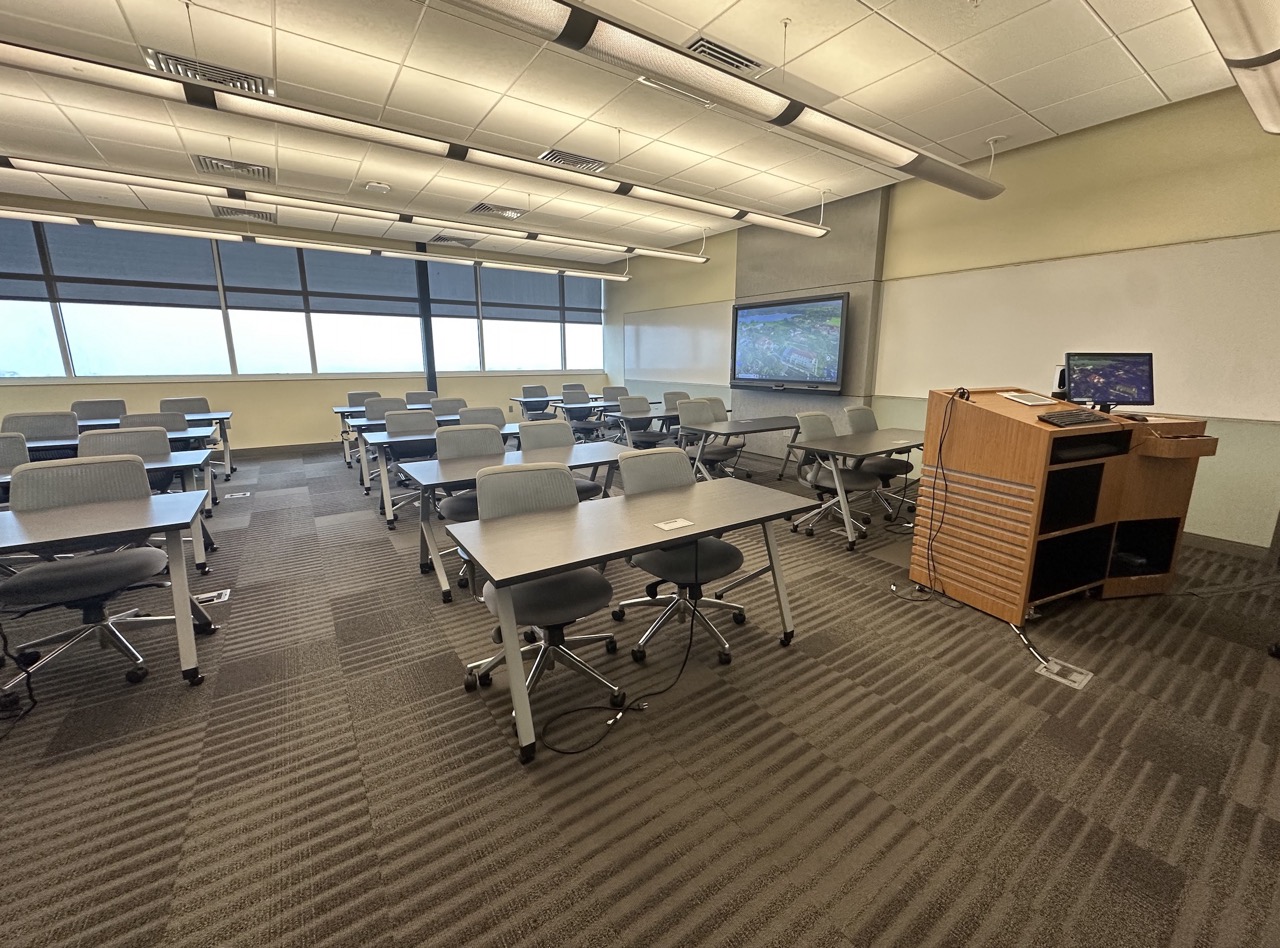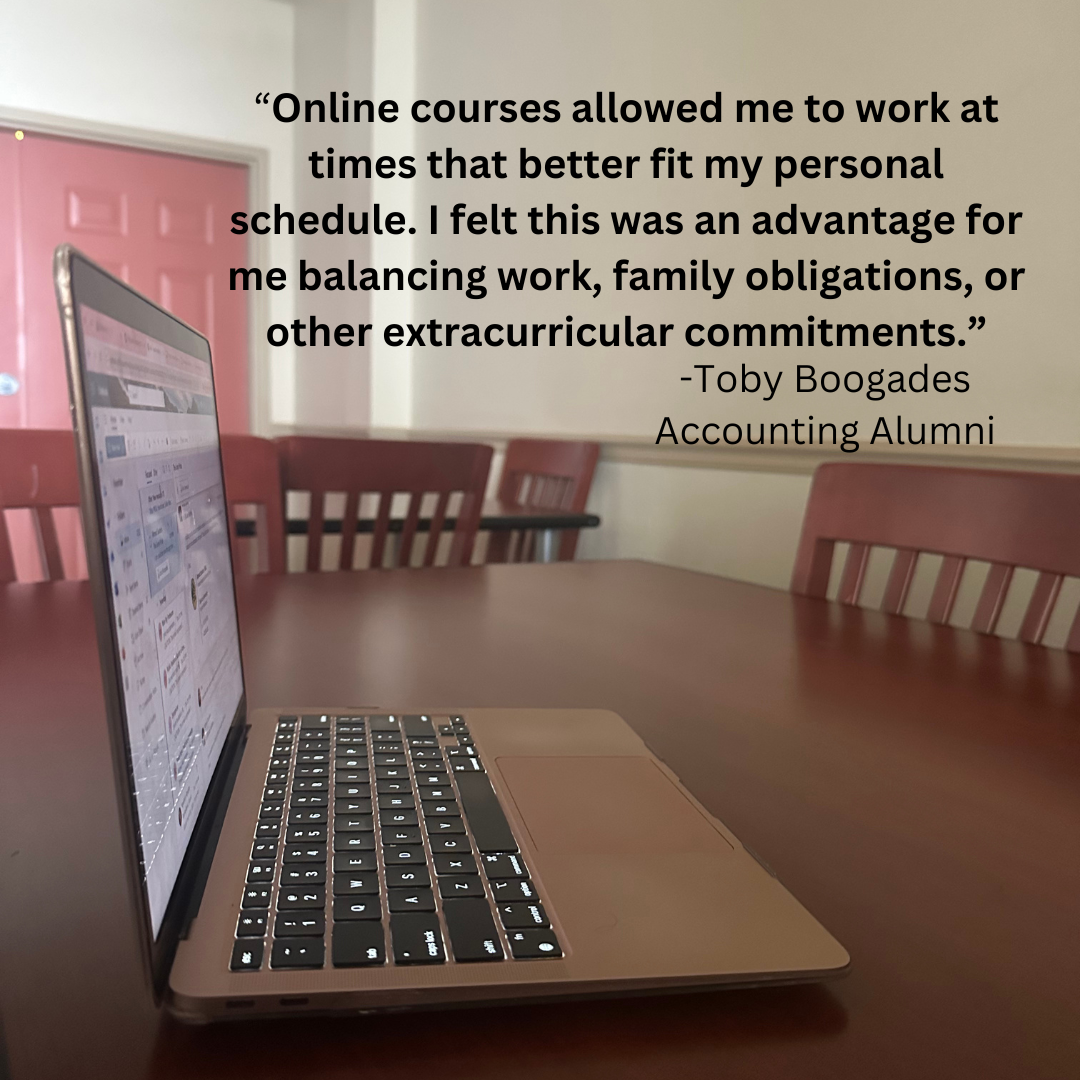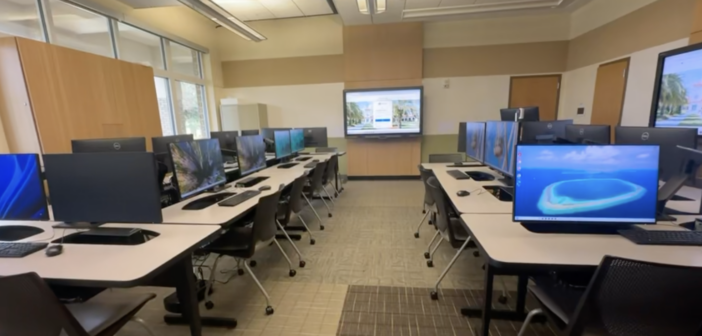By Sarah McMinn, Contributing Writer
In an era where digital learning continues to expand, the debate over whether students prefer online or in-person courses remains a topic of discussion.
To gain insight into this issue, a survey among students and alumni was shared in order to understand their preferences, learning habits, and experiences with both formats. The results show a compelling trend favoring in-person classes, though online courses are still valued for their flexibility.
Despite the increasing availability of digital resources, students continue to weigh the pros and cons of each format when making academic decisions.
The majority of students surveyed expressed a preference for in-person courses. Carson Bulger, a senior communications major, stated “Both formats have their pros and cons, I prefer attending school in person, as it enhances productivity.”
Emma Dedmon, a senior communications major, echoed this sentiment, focusing on how “In-person learning provides a clearer understanding of course expectations and fosters stronger student-professor relationships.”
Similarly, Joseph Stratis, a senior communications major, emphasized this aspect, stating that “in-person classes offer more opportunities to connect with instructors and engage deeply with the material, contrasting online courses, which he felt were often rushed.”

While flexibility is often cited as a major advantage of online courses, many students found that they are more productive in a structured, in-person environment.
Dedmon mentioned, “A set schedule keeps me motivated and accountable.”
Bulger also pointed out that “Although online learning offers freedom, in-person courses ultimately improve focus and discipline. This structure helps me maintain a sense of routine, which can be beneficial for time management and academic success.”
Conversely, some students acknowledge the productivity benefits of online courses, particularly for those who thrive in self-paced environments.
Toby Boogades, an alumni accounting major, stated that “online courses allowed me to work at times that better fit my personal schedule. I felt this was an advantage for me balancing work, family obligations, or other extracurricular commitments. However, that freedom can lead to procrastination and a lack of accountability, making it a less effective choice for some students who struggle with self-discipline.”
Not all students believe the choice must be absolute. Boogades advocated for a hybrid model that blends in-person immersion with online flexibility. He noted that “While in-person learning fosters engagement and better comprehension, online options allowed me to work at my own pace.”
The hybrid model is gaining traction as institutions recognize the advantages of integrating online components into traditional curricula. Many universities have begun offering hybrid courses that include both live lectures and recorded materials, allowing students to review content at their convenience.
This format provides flexibility without sacrificing the benefits of direct classroom engagement, making it an increasingly popular choice among students and educators alike. These hybrid courses are even offered within our own university.
For many students, their opinions on online education were shaped by the remote learning experience during the COVID-19 pandemic.
Stratis admitted “Before the pandemic, I believed online learning was superior, but after experiencing it firsthand, I realized that while online courses may be easier, they do not always provide a deeper understanding of the material.”
Many students recall struggling with Zoom fatigue, technical difficulties, and the lack of social interaction during the pandemic. While online learning offered a necessary alternative during lockdowns, it also revealed significant shortcomings, particularly in subjects that require hands-on experience, lab work, or active participation.

The pandemic reinforced the importance of adaptability in education, pushing institutions to refine their approach to digital learning while preserving the value of traditional classroom instruction.
While online courses offer undeniable flexibility, students overwhelmingly favor in-person classes for their structure, engagement, and ability to foster better learning outcomes.
However, the idea of hybrid learning remains an intriguing possibility for those who appreciate the benefits of both methods.
As education continues to evolve, institutions may need to consider how best to balance the needs of students seeking flexibility with those who thrive in structured classroom settings.
Ultimately, the future of education may lie in providing diverse learning options that cater to different learning styles. By offering a range of in-person, online, and hybrid courses, universities can ensure that students receive a well-rounded education that meets their individual needs.
Whether one format will dominate in the coming years remains to be seen, but one thing is clear: the conversation surrounding online versus in-person learning is far from over.





